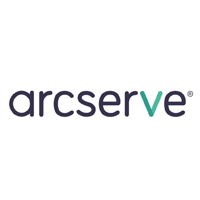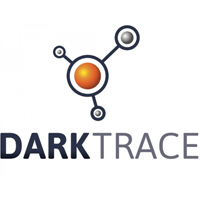Relapse Prevention Strategies Leave a comment
Содержание
One of the most valuable skills taught at the eco sober house review prevention workshops is how to develop a to do list, timetable or schedule. If you are in a 12 Step Programme, you will remember that the 2nd half of Step 1 is about unmanageability. You didn’t get clean and sober to carry on living in physical or emotional chaos, that is what active addiction was like, and chaos can easily lead you back there.
It may seem that “relapse” and “slip” are used interchangeably, and sometimes they can be – or a slip could lead to relapse. Working out if you have experienced a slip vs a relapse could be key to what next steps you need to take, and how to handle the situation. When a person enters mental relapse, part of them starts to consider using and becomes more and more serious about it with time. Lying to yourself about how easily you can manage your addiction is often a key reason why people relapse. And remember – physical relapse is the hardest to come back from if you cross the line. Maybe you feel like your life is falling apart so you might as well go back to the old you.
In this section, we provide resources to help you better understand this illness, and what to do if you or a loved one are affected by alcoholism. Addiction is a disease of the mind and classified as an illness. In this section, we offer information about the most common forms of addiction affecting society in the UK.
In fact, it has been reported in excess of 90% of people undergoing drug or alcohol addiction therapy struggle to retain sobriety and “fall off the wagon” at least once during their rehab. The used cohort was comprised of 31 patients with NMOSD, who were not treated by relapse preventions during the observation period of 2 years from the onset. A total of 16 relapses were observed during the overall follow-up period of 62 person-years. This cohort had no particular exposure of interest, and the ARRs were obtained for the whole population.
- You need to explore the reasons behind your relapse and understand your triggers.
- Relapse happens because some leukaemia cells remain, often because they’ve become resistant to the drugs people are being treated with.
- Use our tool to narrow down information on what’s causing your symptoms.
- Have a list of activities that you can distract yourself with when cravings hit.
- Especially during the initial period of sobriety, the person in recovery can be extra sensitive.
Furthermore, by having a robust plan in place for how you will respond to a relapse, you will stand a much greater chance of overcoming this setback, rather than viewing it as a defeat. Equally important is to learn to identify situations that carry high risk of relapse and to develop very specific strategies for dealing with each of them. High-risk situations include both internal experiences—positive memories of using or negative thoughts about the difficulty of resisting impulses—and situational cues. Many factors play a role in a person’s decision to misuse legal or illegal psychoactive substances, and different schools of thinking assign different weight to the role each factor plays. Recovery benefits from a detailed relapse prevention plan kept in a handy place—next to your phone charger, taped to the refrigerator door or the inside of a medicine cabinet—for immediate access when cravings hit.
Relapse prevention strategies vs relapse management strategies
If they do become overwhelming, or persist after you recover, you could make an appointment to discuss your concerns with your GP or MS team for some support. Cravings can be dealt with in a great variety of ways, and each person needs as array of coping strategies to discover which ones work best and under what circumstances. One strategy is to shift thinking immediately as a craving arises. Another is to carefully plan days so that they are filled with healthy, absorbing activities that give little time for rumination to run wild. Exercise, listening to music, getting sufficient rest—all can have a role in taking the focus off cravings.

Cognitive resistance weakens and a source of escape takes on appeal. This stage is characterized by a tug of war between past habits and the desire to change. Thinking about and romanticizing past drug use, hanging out with old friends, lying, and thoughts about relapse are danger signs.
There are treatments and ways of managing symptoms which can help you deal with many different MS symptoms. The therapist will walk their patient through a high-risk situation – preferably one which is specific to the client – and then ask the client to practise their responses. Finally, if escape is impossible, then delay can help the person with a SUD to buy time before they eventually manage to escape. There are many examples of both specific and global intervention strategies, so we’re picked out five or six examples of each. And yet, there are many things pulling them towards substances. They may be tempted by the freedom from responsibility which comes with drinking, or the instant gratification of the drink itself.
However, if you experience sudden difficulties, such as with your eyesight or mobility, it’s more important to contact your MS team as soon as possible in case you need treatment. Both the frequency and severity of relapses are very variable and unpredictable. A UK study in 2012 found that on average, people with relapsing remitting MS have around one relapse every two years.
It uses a range of strategies to help service users minimise the risk of relapse. These include dealing with high-risk situations, avoiding ‘abstinence violation effect’ and coping with cravings. Alcohol relapse is when a person who has been through alcohol addiction treatment returns to alcohol after a period of sobriety. It may be a one-time lapse or a more sustained return to drinking but it can seriously affect a person’s confidence or cause them to feel like they have failed. However, it is incredibly important to know that up to 90% of people in alcohol recovery relapse at least once before taking full control of their addiction and so alcohol relapse is nothing to be ashamed of.
Stress management techniques include meditation, exercise, muscle relaxation and breathing exercises. These techniques, when applied during a high-risk situation, can lower the chances of a lapse or https://sober-house.org/. The three stimulus control techniques of avoidance, escape and delay act as safeguards. The first of these, avoidance, comes into play when the person in recovery sees a high-risk situation on the horizon and is able to avoid it. This may not always be possible, which is why the other two safeguards are useful.
There is no one-size-fits-all plan when it comes to self-care. Your self-care practice will entirely depend on you and your needs. Self-care is a key aspect of a strong recovery program, and for me, it was a game-changer.
How to help someone who has relapsed on drugs or alcohol
Protecting your mental health should be a life-goal, and seeking out help for mental health issues could be the most important decision you ever make. If you are addicted to substances such as heroin, cocaine or prescription drugs, then we can help you select drug rehab that’s suited to your needs. Detoxing from alcohol without medical assistance is life-threatening.

You can anticipate feeling guilty and disappointed in yourself after using drugs or alcohol again. But it is important not to allow these feelings to give you permission to continue using. These are just a few examples which may or may not relate to you.
What to do if you think you are experiencing a bulimia relapse
It might mean entering, or returning to, a treatment program; starting, or upping the intensity of, individual or group therapy; and/or joining a peer support group. They may not recognize that stopping use of a substance is only the first step in recovery—what must come after that is building or rebuilding a life, one that is not focused around use. In general, the longer a person has not used a substance, the lower their desire to use. Relapse is most likely in the first 90 days after embarking on recovery, but in general it typically happens within the first year. Recovery is a developmental process and relapse is a risk before a person has acquired a suite of strategies for coping not just with cravings but life stresses and established new and rewarding daily routines. Addiction relapse often takes place when someone in recovery has left rehab, believing they have addiction under control, but falls back into the trap of abusing drugs or alcohol.
Sometimes the symptoms of a relapse go away completely; but there is the possibility that some might only partially improve, remain unchanged, or become permanent. Getting out of a high-risk situation is sometimes necessary for preserving recovery. It’s possible to predict that some events—parties, other social events—may be problematic. It’s wise to create in advance a plan that can be enacted on the spot—for example, pre-arranging for a friend or family member to pick you up if you text or call. Also critical is building a support network that understands the importance of responsiveness. Not least is developing adaptive ways for dealing with negative feelings and uncertainty.
- Medical staff might call relapses things like an attack, flare-up, exacerbation, acute episode or clinical event.
- Or they may believe that they can partake in a controlled way or somehow avoid the negative consequences.
- An important factor to always consider is that any new symptom or sustained worsening of an existing symptom should be reported to either a general practitioner or NMOSD team for further assessment.
- Be overactive in making connections with others who understand and appreciate your situation.
For example, you might be having fond memories of your previous drug or alcohol use, telling yourself that just one time will be okay, or hiding how you’re feeling from other people. Sometimes, people who are recovering from an addiction return to their old habits, and begin drinking or taking drugs again. It can even help you to understand your own recovery better. If you’re recovering from an addiction to drugs or alcohol, a doesn’t have to mean the end of that journey. An infection can cause a temporary increase in symptoms (sometimes called a pseudo-relapse) but more serious infections can also trigger a genuine relapse.
Sources of support
Trevor was diagnosed with follicular lymphoma in 2012 at the age of 42. Our pages on different types of lymphomagive more specific information on how each type is treated if it has relapsed more than once. Other treatments might be available through a clinical trial.
- These are just a few examples which may or may not relate to you.
- If you have returned to use after quitting or reducing treatment activities, decide if you need to return to these or increase your participation.
- Relapses can last anywhere between a few days, up to weeks or even months.
- You could also make an appointment and talk to your GP, who may prescribe any medication you require to reduce cravings and deal with underlying issues like anxiety or depression.
Your family and friends may experience a range of emotions such as anxiety, guilt or anger. Being aware that they may have these feelings during a relapse, and that it’s a completely normal reaction, can help all of you to manage. Infections– illnesses such as a cold, flu, stomach bug or bladder infection can cause symptoms to worsen.
Relapse prevention is built into our treatment programme from the very start, and patients will work on their plan weeks before they discharge. And the most important thing to remember is – you can prevent relapse with theproper support and continuing carein place. This could be places that remind you of your drug or alcohol use, people who aren’t supportive of your recovery, or it could be stressful situations.
Life After Relapse: How to Start Over…Again
CrisisChat online Speak to one of our experienced practitioners using the webchat service. ChatAlcohol and drugs Get support if you want to cut down or stop.Family and friends Support for you and someone close to you.Under 21 Advice for anyone under 21 or anyone supporting a young person. During some relapses, you may have more obvious problems with thinking.
After your loved one leaves alcohol rehab, it is so important to understand that these triggers can rear their ugly heads at any moment. One of the best things you can do to avoid alcohol relapse is to create an environment that is conducive to sobriety. This means removing alcohol-related items from your home, encouraging them to try out new hobbies and activities and just being there to listen when they are experiencing alcohol cravings or difficult moments. To help a loved one who has relapsed, it is important to remember everything you learned while they were undergoing alcohol treatment. Addiction is not simply a physical dependence – It is a multi-faceted condition with various underlying emotional and psychological causes and triggers. Alcohol relapses can and do happen and so being able to put yourself in their shoes is crucial to helping your loved one bounce back.






